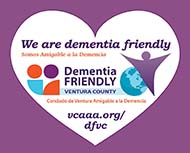Hospice Care
The Four Levels of Hospice Care
When you or a loved one are diagnosed with a life-limiting illness, deciding which step to take next can be difficult, confusing, and scary. As curative treatment becomes less effective, it may be time to shift the focus onto patient comfort and symptom management. It may be time for hospice care.
Hospice is a philosophy of patient care that focuses on the comfort, quality of life, and dignity of a person who is facing a life-limiting illness, has a prognosis of six months or less to live and is choosing to forgo curative treatment. Composed of a highly skilled interdisciplinary team of doctors, nurses, home health aides and social workers, the main objective of Assisted Hospice Care is providing compassionate care, emotional and spiritual support, and a sense of dignity for our patients and their loved ones.
Medicare-Certified Hospice Providers – such as Assisted- must provide all four levels of hospice care as defined by Medicare, to meet the differing needs of patients and their loved ones. Some patients may only need one level whereas others might need all four. The four levels of hospice care are: Routine Home Care, Continuous Home Care (also known as Crisis Care), General Inpatient Care, and Respite Care.
The Four Levels
Routine Home Care
Routine Home Care is the basic level of hospice care provided to patients whose symptoms are controlled and live at home in a private residence, nursing home or assisted living facility. This level of care offers routine home visits, visits for urgent concerns 24 hours a day, and services such as but not limited to:
- Pain and Symptom Management – Assisted Skilled Nurses are especially trained to administer medication, monitor symptoms and pain, ensuring their patients receive the highest quality care.
- Daily Task Assistance – Assisted Hospice Aides help with hygiene, feeding, and errands, allowing the primary caregiver more time supporting the patient.
- Emotional and Spiritual Support – Grief and Bereavement services, chaplains, and volunteers offer support to patients and their loved ones.
Continuous Home Care (Crisis Care)
Continuous Home Care, also known as Crisis Care, is a service provided to in-home patients in a state of crisis that requires a higher level of nursing care for at least 8 hours, and up to 24 hours in a 24-hour day period. The goal of Continuous Home Care is managing acute symptoms and achieving palliation while maintaining the patient’s wish of staying at home. Patients that qualify for Continuous Home Care are experiencing the following symptoms:
- Severe Vomiting and Nausea
- Uncontrolled Bleeding
- Panic Attacks and Anxiety
- Severe Pain
- Severe Trouble Breathing
General Inpatient Care (GIP)
General Inpatient Care is an advanced level of short-term care (3-5 days) required when a patient’s symptoms become so severe, they can no longer be managed at home. GIP provides 24-hour nursing and aide care, as well as access to other members of the hospice interdisciplinary team (Medical Director, Case Manager, Social Worker). The goal of GIP is to control severe pain and manage symptoms so that your loved one can return to the comfort and familiarity of their own home
Inpatient hospice services can be received at:
- A free-standing hospice facility
- A hospice wing in a hospital
- A hospice unit in a skilled nursing facility or nursing home
Respite Care
For most hospice patients, family members are usually their primary caregivers, and although caregiving can be rewarding, it can also be emotionally and physically exhaustive. Respite Care is short-term inpatient care that can be provided to patients to allow their caregivers much need breaks for resting and recharging. Respite care is custom to the needs of the patient and caregiver, it can last from a few hours up to five consecutive days, allowing you to take better care of your own needs and prevent care-giver burnout.
Assisted Home Health and Hospice believes in the importance of quality compassionate care while also providing support and guidance to you and your family during this crucial time in your life. If you or a loved one have been diagnosed with a life-limiting illness and would like to know more about Hospice Care, visit us at www.AssistedCares.com or call 800-949-6555 to learn more about how we can help you through every step of your journey.
Need Help? Call Our Professional Staff Now...800-949-6555
Awards and Certifications
Top Agency

Association of America


The owner of this website has made a commitment to accessibility and inclusion, please report any problems that you encounter using the contact form on this website. This site uses the WP ADA Compliance Check plugin to enhance accessibility.




